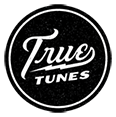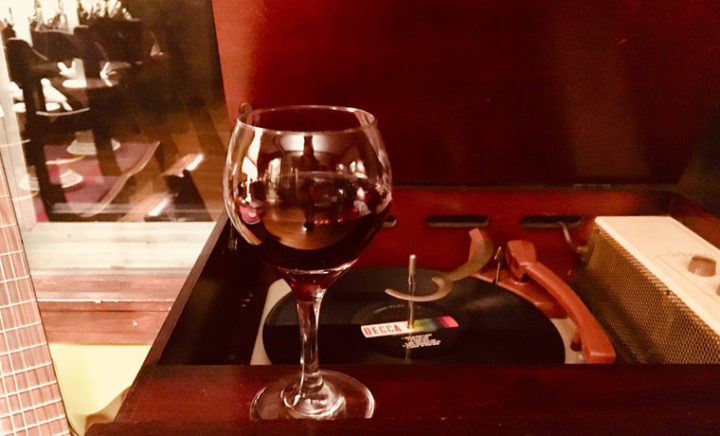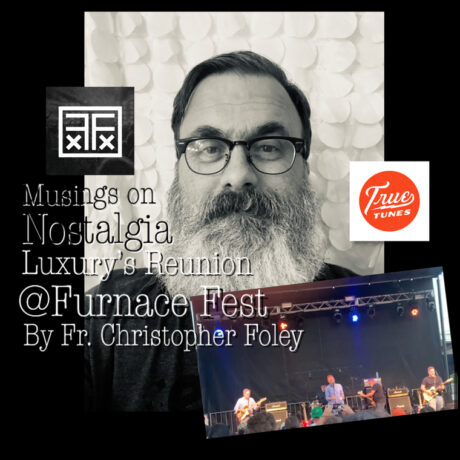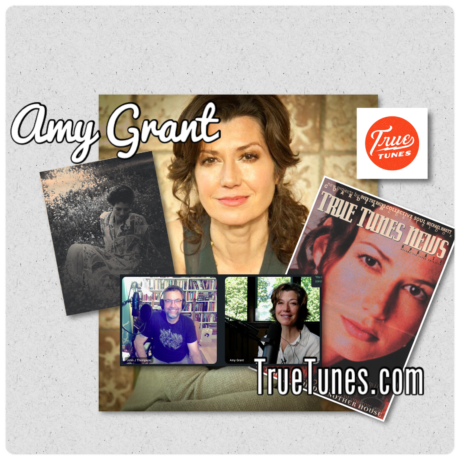Dance Like A Sommelier; Cultivating Discernment in an Era of Abdication
Is it possible that some of the frustration I feel with myself, and the dismay I feel as I contemplate a modern “Christian” subculture that seems emphatically anti-beauty, anti-love, and even anti-Christ, may all have its roots in brain science? As odd as that may sound, I’m finding some consolation in the thought. I’m also reminded of a certain Apostle’s instruction to “renew our minds.”
Discernment is exhausting. Thinking critically is a pain. It’s no wonder our brains are wired to off-load that kind of work as quickly as possible. Hanging out in that front part of the brain is dangerous. Something might sneak up behind us and attack. It’s much safer to keep that part of the brain empty so we can be ready to react to any kind of threat, or perceived threat, at any moment.
Critical thinking, or “executive function,” happens in the front of the brain. It takes a lot of energy and demands a lot of bandwidth. When we concentrate on something, try to make a difficult decision, attempt to analyze conflicting data, appreciate complex art, or contemplate a three-dimensional problem, we are operating in that part of the brain.
The back, and lower, part of the brain – that’s the fast part. That’s the highly efficient, quick reacting part that hums in the background all day like the operating system of a computer. We can multi-task like crazy back in that part of the brain. It’s amazing. It’s also kind of scary.
In the interest of efficiency, and even survival, our brains our constantly working to take things from the front part, where they take up all that valuable real estate and energy, and move them to the back, where they can happen so much more efficiently. Skills work this way. When you first learned how to brush your teeth you probably had to have your parent hold your toothbrush hand to keep you from poking your eyes out. Now you can do it when you are 90% asleep. When you first learned to drive a car you were probably a nervous wreck! Your eyes were WIDE OPEN, taking in as much information as possible. You were hyper aware of every movement and sound that the car made. You were probably physically and mentally exhausted after 30 minutes of driver’s ed. Now you can probably drive for hours and the biggest challenge is staying awake! You are so bored as you operate that 2,000 pound machine at 70 miles per hour, that you have to text your friends or scroll through your Facebook feed just to keep that front part of your brain stimulated. Your brain has moved most of the work associated with driving out of the front part and into the back part. It’s habit, now; nearly sub-conscious.
We do it with our language, our daily routines, our work, and if we’re not careful, our attitudes toward others, our beliefs, our tastes, and more.
Brands understand this process. When we are trying to decide what kind of car to buy we are deep in critical thinking mode. We evaluate all the options and compare prices and imagine ourselves in each car years down the road. The stakes seem very high, so we put ourselves through all the rational wringers until we finally make a decision and sign on the dotted line.
Then, once the keys are in our hands, we almost immediately move into defense mode. Most of us – especially after investing so much into a decision – begin to justify that decision. We don’t want to believe we might have made a mistake. Our brains will selectively edit out information that challenges our decision, while embracing and over-valuing any information that reinforces it. Before long we are utterly convinced – even identified – by that choice that we made. You’re a Chevy girl now. Or a Methodist.
In many cases I am incredibly grateful for this wonder of human adaptation. Neural Plasticity is what the scientists call it. The brain’s ability to build new neural pathways around behaviors, and to reinforce those pathways and anchor them into our memories, is truly astonishing. When it comes to operating complicated machinery, playing a musical instrument, or removing someone’s spleen, that plasticity is incredible. This process has a dark side, though. It is the same phenomenon that gives addiction its power. Once the brain learns that a certain substance, (like alcohol or Oxycodone,) or a behavior, (like gambling, or cutting,) will relieve some kind of emotional pain, it will build a neural pathway between that action and that relief. Addicts are like ballerinas in that way; highly skilled at avoiding gravity.
I’m finding some challenging implications about this whole process when it comes to living a spiritually engaged and awake life. As natural as the process of neural plasticity is, there are times when I believe we are called to resist it. Eastern traditions call this “mindfulness,” and westerners would be wise to listen in when they do. Mindfulness is about regaining some conscious understanding and awareness of behaviors, attitudes, and ideas that have become ensconced deep in the back part of our brains. Mindfulness allows us to become aware of the pain that we may be unconsciously medicating, the fear that may be shaping our behavior, or the anger that may be motivating us. It can be frightening to allow light to shine on these often deeply hidden boggarts, but the secret to our freedom often rests in that light.
I think one of the ways big-time, formally branded “Christian Music” planted the seeds of its own destruction, alongside much of the rest of modern Evangelicalism, was when, instead of cultivating a culture that valued the art of discernment and mindfulness, modeling a willingness to be taught, corrected, and shaped by other people’s experiences, it instead focused on the very lucrative market-based opportunity of abdicated discernment. Instead of teaching the last several generations of Jesus followers how to hear, value, process, and critique art, books, ideas, and even theology, a large chunk of these well-intentioned folks instead offered a transactional bargain. “You give us your trust, your attention, your support, and your cash,” they seemed to say, “and we’ll do the discerning for you. We’ll tell you what’s Christian and what is secular.” Their marketing pitch included the impossible insinuation that if we simply agreed to consume nothing but these sanctioned “Christian” products, our marriages would be strong, our kids wouldn’t fornicate or use drugs, and we would thrive financially and even politically. They offered up a slate of products that were ostensibly Safe For The Whole Family, despite the decidedly unsafe, but Biblical, call of Jesus for his followers to “die to themselves.” I’ve never understood what is so “safe” about human sacrifice anyway.
The problem is that we now have several generations that have not been trained to appreciate the good, the true, and the beautiful, or to sniff out the self, the fear, and the ugliness of sin when it is dressed up as morality. We have churches full of dutiful consumers instead of faithful discerners. And now, as many reject the need for discernment at all, the church is left on the outside looking in. The “recommended if you like ____” version of Contemporary Christian Music, or Christianity in general, is not only useless, it’s the opposite of the Gospel Jesus both preached and lived.
We need a renaissance. We need mentors to come alongside us and coach us, like sommeliers, to appreciate the finer notes and aromas, and to recognize the impurities and pollutants. We need advocates to spur us to excellence. And we need to gather a large enough audience that appreciates excellence, so that when it happens, those artists can actually thrive.
Our imagination is where we practice being human, and even being heroes. Actively listening to and appreciating music can have a similar benefit. As we learn to discern the emotional language, the prejudices, the perspectives and biases, and the underlying hopes, we can develop the kind of empathy and sensitivity that will make us better listeners, neighbors, and friends in the rest of our lives. The spiritual and aesthetic muscles we strengthen by become excellent listeners will serve us well when we head out to be lovers of the world.
Unless we are helpless children, we don’t need gatekeepers to protect us from the bad stuff. We need guides to help us learn to identify the good stuff, to value it, and to let it shape us, inspire us, and open us up to what Love might want to do in us.
That’s what this emerging community is all about; mindfulness, consciousness, coaching, discerning, and celebrating. It’s one thing – and reasonable – to look around and weep over what we have lost. But once the weeping is done, let’s drop a needle on some wax, turn the amplifier up, and do some dancing. The doors aren’t closed just yet.




